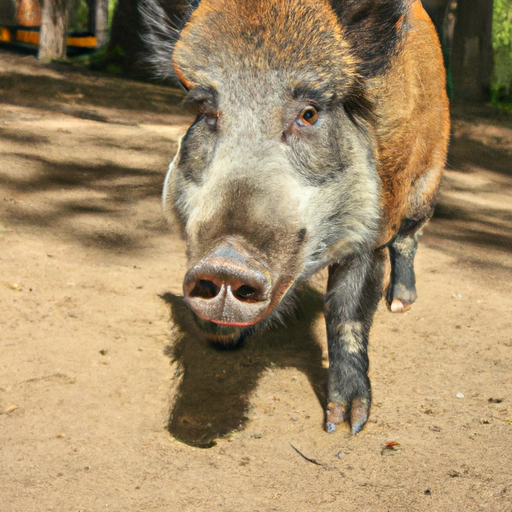 Introduction:
Introduction:
Down syndrome, also known as trisomy 21, is a chromosomal disorder that affects humans. It is caused by the presence of an extra copy of chromosome 21, leading to various physical and cognitive disabilities. Given the complexity of this condition, one might wonder if animals can also have Down syndrome. In this extensive article, we will delve into the topic, examining scientific evidence, case studies, and expert opinions to shed light on whether animals can indeed have Down syndrome.
Understanding Down Syndrome:
To fully comprehend the question at hand, it is crucial to understand the basics of Down syndrome. In humans, trisomy 21 occurs during the formation of reproductive cells, resulting in an extra copy of chromosome 21 in the fertilized egg. This genetic anomaly disrupts the regular development of the body and brain, leading to characteristic physical features, intellectual disabilities, and potential health issues.
Genetic Differences Between Humans and Animals:
While humans share many similarities with animals on a genetic level, there are also significant differences. Humans have 23 pairs of chromosomes, with chromosome 21 being responsible for Down syndrome. On the other hand, most animals have a different number of chromosomes, making it unlikely for them to have an exact counterpart to chromosome 21. However, this does not rule out the possibility of animals having similar genetic disorders.
Evidence of Down Syndrome in Animals:
Although animals do not possess a direct equivalent of chromosome 21, they can still experience genetic disorders with similar symptoms to Down syndrome. These disorders are often caused by mutations or abnormalities affecting genes related to mental or physical development. However, it is important to note that these conditions are not formally diagnosed as Down syndrome in animals, as the term is specific to humans.
Case Studies:
Several animal species have been observed to exhibit characteristics reminiscent of Down syndrome. For instance, domestic cats with a condition called feline cranial facial dysplasia display flattened facial features, widely spaced eyes, and cognitive impairments, much like individuals with Down syndrome. Similarly, certain dog breeds, such as the Boxer, have a higher incidence of congenital heart defects, which are common in individuals with Down syndrome.
Primates, our closest animal relatives, have also been studied extensively. Chimpanzees with trisomy 22 exhibit physical and cognitive impairments resembling Down syndrome in humans. These animals typically have reduced muscle tone, short stature, and developmental delays.
Expert Opinions:
Experts in genetics and animal behavior offer valuable insights into the topic. Dr. Jane Goodall, renowned primatologist, suggests that while animals may not have Down syndrome per se, they can experience genetic disorders resulting in similar symptoms. She emphasizes the importance of understanding and addressing these conditions to provide appropriate care for affected animals.
Dr. Sarah Hart, a veterinarian specializing in genetic disorders, supports this notion and highlights the need for further research. She explains that in animals, it is crucial to identify and study the specific genetic mutations responsible for developmental disabilities, rather than using the term “Down syndrome” as a blanket diagnosis.
Ethical Considerations:
The discussion surrounding animals and Down syndrome raises ethical questions. Some argue that labeling animals with Down syndrome is anthropomorphizing and may trivialize the experiences of individuals with the actual condition. Others believe that recognizing genetic disorders in animals helps promote awareness and compassionate care for animals facing similar challenges.
Conclusion:
While animals may not have Down syndrome as it occurs in humans, they can exhibit genetic disorders with symptoms resembling the condition. These disorders are caused by different genetic mutations and abnormalities, specific to each species. Understanding and studying these conditions is crucial for providing appropriate care and support to affected animals. Further research is needed to explore the genetic basis of these disorders and their implications for animal welfare. As science advances, our comprehension of these complex genetic conditions will continue to evolve, benefiting both humans and animals alike.
